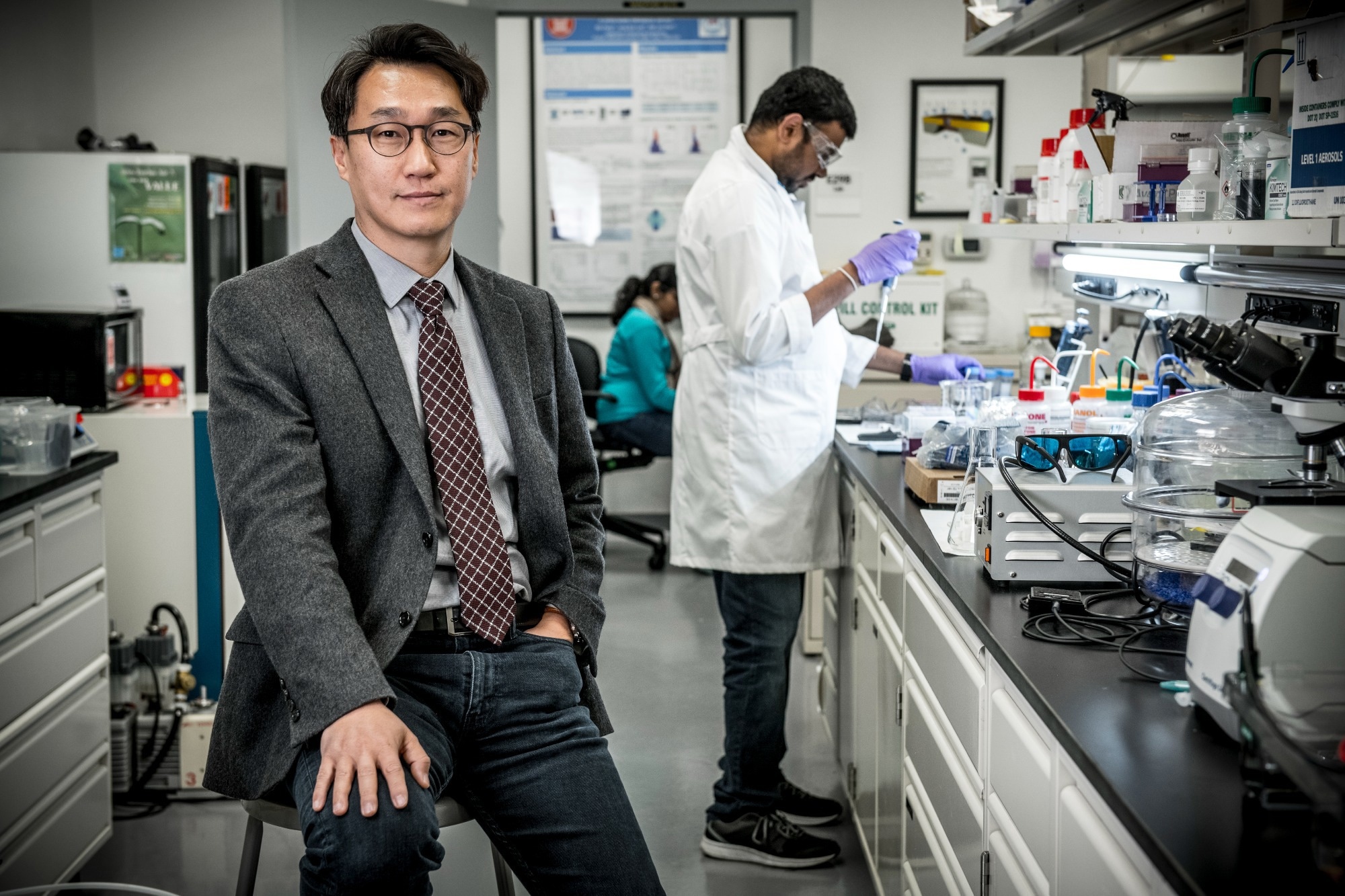Reviewed by Lexie CornerSep 12 2024
MinJun Kim, the Robert C. Womack Endowed Chair Professor at SMU Lyle School of Engineering, and his research team have received a $300,000 grant from the National Science Foundation to develop a nanosensor that will improve the accuracy of gene therapy. This will allow for more effective clinical trials with fewer side effects.

Image Credit: Southern Methodist University
While gene therapy holds great promise as a transformative treatment for numerous diseases, it comes with risks and challenges. Modifying a person’s genes requires precision—targeting the correct tissue, delivering the right amount of DNA, and ensuring it functions over the appropriate period of time.
Since 2015, more than 2,200 clinical studies for gene therapy have been conducted, many involving liposomes—small lipid bubbles that deliver DNA into cells. Successful delivery depends on loading the DNA in sufficient amounts and dispersing it uniformly within the liposomes, a process that is currently time-consuming, costly, and poses quality control concerns.
Kim and his team are developing nanosensor technology that can quantify, classify, and confirm the DNA content in liposomes at the single-particle level. This breakthrough will provide unprecedented accuracy in DNA dosage and could revolutionize the success rate of gene therapy clinical trials in the future.
Our vision is that the development of these nanotechnologies for biosensing will improve access to gene therapies. This work represents a primary step toward bio-manufacturing that could significantly reduce the cost of gene therapy treatments while ensuring high accuracy in dose control.
MinJun Kim, Robert C. Womack Endowed Chair Professor, Southern Methodist University
The project is highly multidisciplinary, encompassing biochemistry, gene transport, nanofabrication, nanophotonics, and nanopore biosensing. The team expects this study to attract undergraduate and graduate students with diverse STEM interests.
Kim added, “Molecular characterization through nanopore-based techniques is part of the next frontier in genomics and proteomics for the coming decade. We believe this work will prepare students for the next step in their careers.”
This material is based on work sponsored by the United States National Science Foundation under grant No. 2421778.